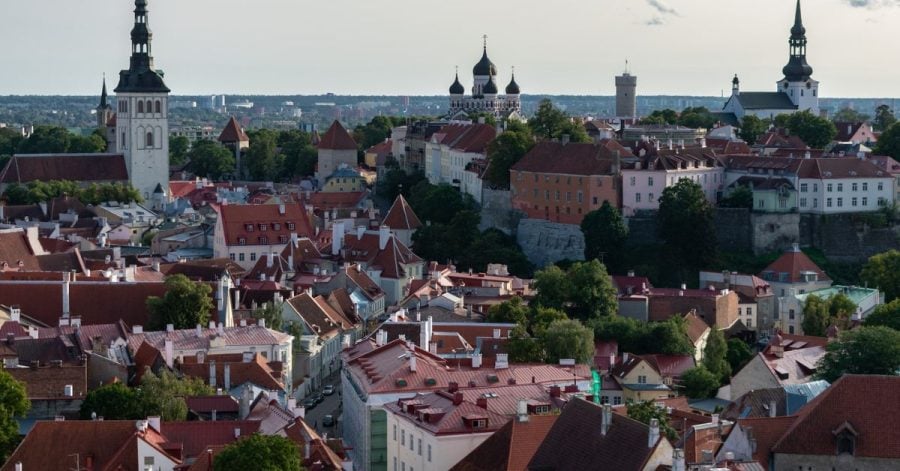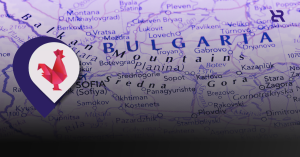A tiny country without any significant resources or big industries, Estonia has been betting against all odds during the past two decades to show that it is possible to mature into a developed economy.
The Recursive took a look at the reasons behind the success of Estonia’s digital society, what makes the Estonian startup ecosystem one of the most successful ones in Europe, as well as the subsequent rise of the country’s growing number of unicorns.
So how did the Baltic country with a population of mere 1.3 million people do it? The development of the former Soviet republic began in 1991 when it regained its independence. Back then, its authorities decided to choose a Digital-First strategy – creating a technologically capable public sector based on the pillars of a robust digital infrastructure.
“Estonia’s success as a digital nation is because the country, after the collapse of the USSR, realized that it could not compete in sectors such as mechanics or agriculture against well-established Western countries. Therefore, as early as the mid-1990s, Tallinn decided to focus on industries that had not yet emerged, such as information technology,” intelligence analyst Michael Lambert, who has spent several years living in the Baltic country, tells The Recursive.
Another crucial factor was the rise of the private sector and the privatization of its economy.
“The government doesn’t build the digital society – it’s only running it, and it’s the private sector that develops and offers world-class solutions and services. Also, long before there was any technology introduced, Estonia created a comprehensive legal framework around data and privacy protection, which enabled authorities to offer public services digitally,” Erika Piirmets, digital transformation adviser at e-Estonia, tells The Recursive.
The country’s startup sector is another critical pillar of its thriving economy. With an annual growth of approximately 30 percent, the success of Estonia’s startups undoubtedly started with the exit of Skype, the country’s first unicorn.
“That created a strong startup scene because Skype’s founders re-invested back into Estonia, and that new flow of capital enabled other companies to grow. Also, as Estonia is quite small, our startuppers always focus on delivering their product/service to the global market. Still, the collaboration and mentorship inside Estonia is strong and driving the community forward,” Piirmets says.
The number one “unicorns per capita” country in the world
According to Estonian business journalist Handu Sinisalu, Skype’s success inspired Estonian entrepreneurs to dream big. For countries such as Croatia, Romania and Bulgaria, which already have at least one unicorn, this should also be an indicator of how their ecosystems can develop in the long run.
“Skype demonstrated that IT IS POSSIBLE to build a global company from a tiny country. It generated the feeling, the mindset of “we can, it is possible”. In addition, the founders of Skype got rich when Microsoft bought Skype, and they have used both the intellectual and financial capital to create dozens of new successful startups,” Sinisalu tells The Recursive.
Currenrly, Estonia has more than 1400 startups and ten unicorns, making it the number one country of unicorns per capita in Europe. The largest sectors where Estonian startups have seen big growth are business software, HR and fintech among others.
In terms of funding, Estonian startups signed 61 funding deals for €1,2 billion in the first nine months of 2022, with 40 deals valued at more than a million euros. In comparison, tech companies, startups and scaleups from the whole Southeast Europe region managed to raise just over €2 billion in the first half of the year.
At the end of the third quarter of 2022, Estonian startups also generated €1,5 billion in turnover – an increase of 64 percent compared to the same period last year (€927,2M).
“We are pragmatic people who love high-quality and functioning services. For this reason, we are always looking for ways to allow innovation to grow in Estonia and expand our success across our borders – from exporting our electronic identity or interoperability solutions to consulting governments worldwide to establish similar systems that Estonia has done. Also, to expand our services to all people in the world, creating e-Residency programme where every person can remotely be a part of our digital nation,” Piirmets points out.
The benefits for Estonian entrepreneurs
While Estonia’s success story shows how a small country can make rapid progress if it is committed to digital transformation, it also indicates that there are many opportunities for developing countries, should they have strong digital infrastructures and clear regulations.
“Estonian general approach has been to create an agile and hassle-free pro-business environment. It means that government listens to the tech community, it’s a very close and open relationship. If there is an obstacle that hampers the development, necessary changes must be taken, be it change in regulations, law – everything can be done if there is a real need for it,” Kata Varblane, deputy director of marketing and international relations at the Estonian Investment Agency, tells The Recursive.
And for Estonian entrepreneurs themselves, starting a business in the country has proven to come with many advantages.
One of the recent examples is Raison, a fintech platform from Estonia, which lets individuals invest in top-tier venture deals of private tech companies.
Last year, the company closed its biggest funding round and reached $11.5M valuation, making it one of the breakout fintech projects in the industry. According to Raison’s CEO Alex Zaytsev, there are many benefits for establishing a fintech startup in the country.
“The fintech sector in Estonia is developed in terms of virtual currencies, virtual assets service providers, and licensed funds facilitated by progressive legislation. Servicing a company in Estonia is also more accessible than in other European countries. One of the advantages of Estonia is a favorable tax regime; there is no income tax in case of non-distribution of dividends,” Zaytsev tells The Recursive.
He further adds that such examples also prompt the rest of Europe to follow Estonia’s practices.
“In many ways, this is happening: Europe, for example, follows Estonia in developing virtual currencies. In this sense, Estonia has become a kind of regulatory sandbox, the experience of which formed the basis of the recently approved Markets in Crypto-assets regulation (MiCA) of the European Union,” Zaytsev notes.
For Annemari Muru, CEO of contactless car sharing and rental app Liigu, the foreign-friendly investment policy and possibilities such as the e-Residency makes the Baltic country an ideal place to open a tech business.
“I can say without much modesty that Estonia is probably one of the best places to start a tech-driven business. Obviously, as we are a tiny country, every idea seeded here should have global reach as their ambition, whether one considers business goals or how to scale up a team,” Muru tells The Recursive.
Additionally, she adds that Estonia’s regulatory framework is digitized to an unimaginable level for most of the “older” Western European countries – something which should also serve as an example for the SEE countries in their search for economic growth.
“The beauty of a small country is that we can adjust quickly, it is easier to build relationships, and any administrative hassle you may face is solvable in a very short timeframe. More likely is that you won’t face that many at all,” Muru concludes.








